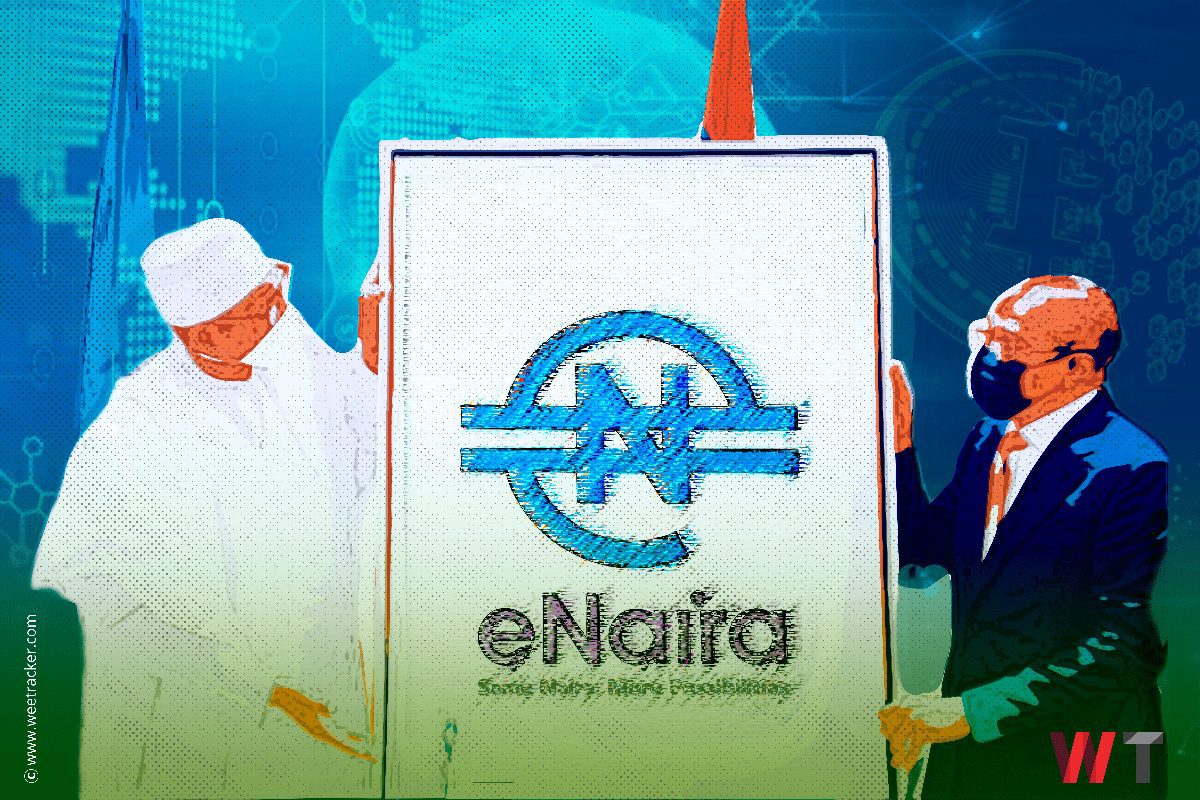Startups Are Being Tapped To Save Nigeria’s Struggling eNaira Digital Currency

Almost a year after Nigeria’s apex bank rolled out a fast-tracked national digital currency, eNaira, which stirred both pleasant surprise and notable scepticism, it’s become noticeable that the digital naira is enduring scarce adoption. But the Central Bank of Nigeria (CBN) seems undeterred, banking on a recent partnership with African fintech champion, Flutterwave, to turn the tide.
The CBN and Flutterwave are collaborating with a view to boosting the adoption of the largely dormant eNaira, with the former hoping some of the success of the latter in facilitating digital payments would rub off on a digital currency initiative that targets big gains for the Nigerian economy but has struggled to take off.
In Africa’s most valuable startup, Flutterwave, which boasts an ever-expanding digital payments ecosystem in its home market, Nigeria, and dozens of other countries, the CBN has landed one of the largest portals for online sellers and buyers.
The partnership would see Flutterwave enable eNaira collections for merchants in Nigeria, in an effort to boost adoption by enabling buyers and sellers to link the eNaira to their platforms and transact with the e-currency directly.
Last month, during an event that was essentially a competition where contestants were incentivised to come up with nifty ideas that can expand use cases for the flailing eNaira, the CBN Governor, Godwin Emefiele, shared there are around 17,000 active eNaira merchant wallets.
The CBN Governor also revealed that after 10 months of its launch, the eNaira Speed Wallet app had seen 840,000 downloads of which nearly a third are active wallets, with total transaction value and volume at NGN 4.4 B (~USD 10 M) and 200,000 respectively. Those figures are dwarfed considerably by what is observed in Nigeria’s established e-payment channels, and critics point to utility flaws and a generally superfluous proposition as points of weakness.
Nigeria made history by becoming the first country in Africa to issue a Central Bank Digital Currency last October, but the jury was out on the endeavour right out of the gate.
A bumpy first few days that culminated in the temporary withdrawal of the then-glitchy eNaira app from the app stores hardly helped, and the product itself was questioned by many and cast by some as little more than a vanity project.
Nigeria’s President Muhammadu Buhari said the eNaira is expected to add USD 29 B to the country’s Gross Domestic Product over the next decade, and he also noted important benefits in remittances, payments, financial inclusion, and social schemes. But in a country where cryptocurrency dealings had been blacklisted months prior, the hasty release of Nigeria’s national digital currency seemed to some as a means to repurpose the country’s acquired crypto appetites.
However, the eNaira was always up against given it essentially emerged as an app doing the same things Nigerians have gotten used to doing with myriad banking apps, USSD codes, and ubiquitous mobile money agents. Nor did it help that the eNaira wallets have to be funded via banking apps, thus serving people who have little or no need for it. Not even the offer of free transfers on the eNaira platform could spark a shift.
Local financial industry analysts expressed concerns at the time of launch that the eNaira proposition was fundamentally redundant and not compelling enough. Almost a year on, the observed tepid adoption would support that view.
The CBN would now be looking to breathe new life into the struggling endeavour by unlocking a new dimension with Flutterwave, which would be keen on assisting a financial industry principal that recently awarded the startup a prestigious license; a welcome development after its recent wave of regulatory skirmishes in Kenya and older scandals pointing a finger at the company’s leadership.
Beyond that, Nigeria’s Central Bank also targets a new phase for the eNaira rollout aimed at boosting financial inclusion, an effort at “banking the unbanked” by expanding the eNaira service to include users who may be better suited to signing up and using the digital currency via USSD rails and physical agents. This would cater to people who don’t have bank accounts and don’t use smartphones.
A separate partnership between the CBN and Clickatell, a global player in the communication-platform-as-a-service (CPaaS) and chat commerce sector, aims to drive this new phase. However, the struggles of the CBN in making the eNaira relevant among Nigerians are unlikely to experience a swift turnaround.